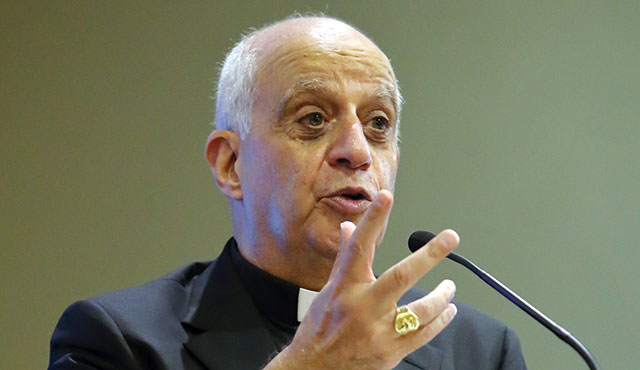In 2010, Pope Emeritus Benedict established The Pontifical Council for the New Evangelization. In 2012, he called for a Bishops’ Synod to discuss the New Evangelization. Pope Benedict said that “the process of secularization has produced a serious crisis of the sense of the Christian faith and role of the Church”, and the new pontifical council would “promote a renewed evangelization” in countries where the Church has long existed “but which are living a progressive secularization of society and a sort of ‘eclipse of the sense of God’.”
By 2013, New Evangelization became a buzz phrase in Catholic media and books proliferated on the topic. Its origin however goes back to 1983 and an address made by St. John Paul II to Latin American Bishops and later to the entire Church in his encyclical, Redemptoris Missio.
In this encyclical, St. John Paul II referred to a “new evangelization” that would target a very specific group of people: fallen-away Christians. More than ever we see the need for this type of evangelization all around us. Every one of us knows someone who was once baptized but who no longer practices the faith.
Sadly, in the United States, there are roughly 22 million fallen-away Catholics, enough to be considered the largest religious denomination in our country. Speaking at the 2017 Religious Education Congress, Bishop Barron said that for every person joining the Catholic faith, six are leaving it. These are not “seekers” looking for another, easier, or what they feel is a “more relevant faith.” Worse…they, like the REM song “Losing my religion” implied, have become part of the dramatically increasing group called “Nones” or those who affiliate themselves with no religion. Astounding is the fact that 50% of Catholics under the age of 30 have left the Church!
St. John Paul II wanted the faithful to clearly recognize this problem early on and then try to solve it. His vision was for us to reach out to, and re-evangelize our family members, friends, and neighbors who no longer consider themselves members of the Church and live a life far removed from Christ and His Gospel.
In his encyclical, St. John Paul II said “I sense that the moment has come to commit all of the Church’s energies to a new evangelization…no believer in Christ, no institution of the Church can avoid this supreme duty: to proclaim Christ to all peoples.”
New Evangelization is a journey of transformation and spiritual renewal centered on Jesus and the life-changing message of the Gospel.
New Evangelization asks Catholics to learn and pray about what it means to be a Church on mission filled with joyful, missionary disciples.
Locally through our Bishop, the Most Reverend Kevin W. Vann and those who labored to create the recently published strategic plan, we have heard the Holy Spirit speak of God’s missionary plan for our diocese. The plan begins by calling us to go back to the original mission of the Church and to share the good news of the Gospel — to unleash the Gospel – throughout our community. The mission statement of the plan makes that clear:
“Go therefore and make disciples of all nations, baptizing them in the name of the Father and of the Son and of the Holy Spirit and teaching them to obey everything that I have commanded you.” -Matthew 28: 19-20 (Diocese of Orange, Mission Statement).
The time is now! We need to prepare ourselves and equip others by inviting people to become joyful, missionary disciples and learn how to share that message with others.
St. John Paul II said that each of us needs to move from a faith of habit to a faith that is conscious and personally lived. We need to renew our faith and to lead others to the Truth that is Christ.
His quote from 1983 rings true today, 36 years later: “Look to the future with commitment to a New Evangelization, one that is new in its ardor, new in its methods, and new in its expression” (St. John Paul II, Address to the Latin American Bishops).
Knowing what we are called to do, how do we do it? How do we reignite an ember of faith and help grow the relationship between someone else and Jesus? Fortunately there are several powerful resources available to help us. Listed below are a few of those that I have found interesting, exciting, affirming and most of all enlightening.
One of the most well-known and prolific authors on this topic is Matthew Kelly. The mission statement of his publishing company, Dynamic Catholic, says it all: “To re-energize the Catholic Church in America by developing world-class resources that inspire people to rediscover the genius of Catholicism.” Note the words re-energize and reignite…the very core of new evangelization. The company actually gives away free books Confirmation prep materials, CDs, and daily inspirational ideas, all at DynamicCatholic.com.
Bishop Robert Barron is the founder of Word on Fire Ministries, the publisher of the award winning “Catholicism.” Bishop Barron is known as one of social media’s rock stars with his Tweets, Facebook and Youtube posts responding to the most difficult questions asked of and among our faithful.
Fr. Robert Spitzer, Jesuit priest, philosopher, educator, author, speaker, and retired President of Gonzaga University hosts a weekly program, Father Spitzer’s Universe on EWTN with all episodes available on Youtube. His Magis Institute published a series of 7 compelling online video modules answering questions as hard-hitting as Evidence of a soul from medical studies, Evidence of God from science and philosophy; Proof of the Resurrection; and Why be Catholic? Where to find True Happiness and why God allows suffering in the world. All are available free of charge at CredibleCatholic.com.

